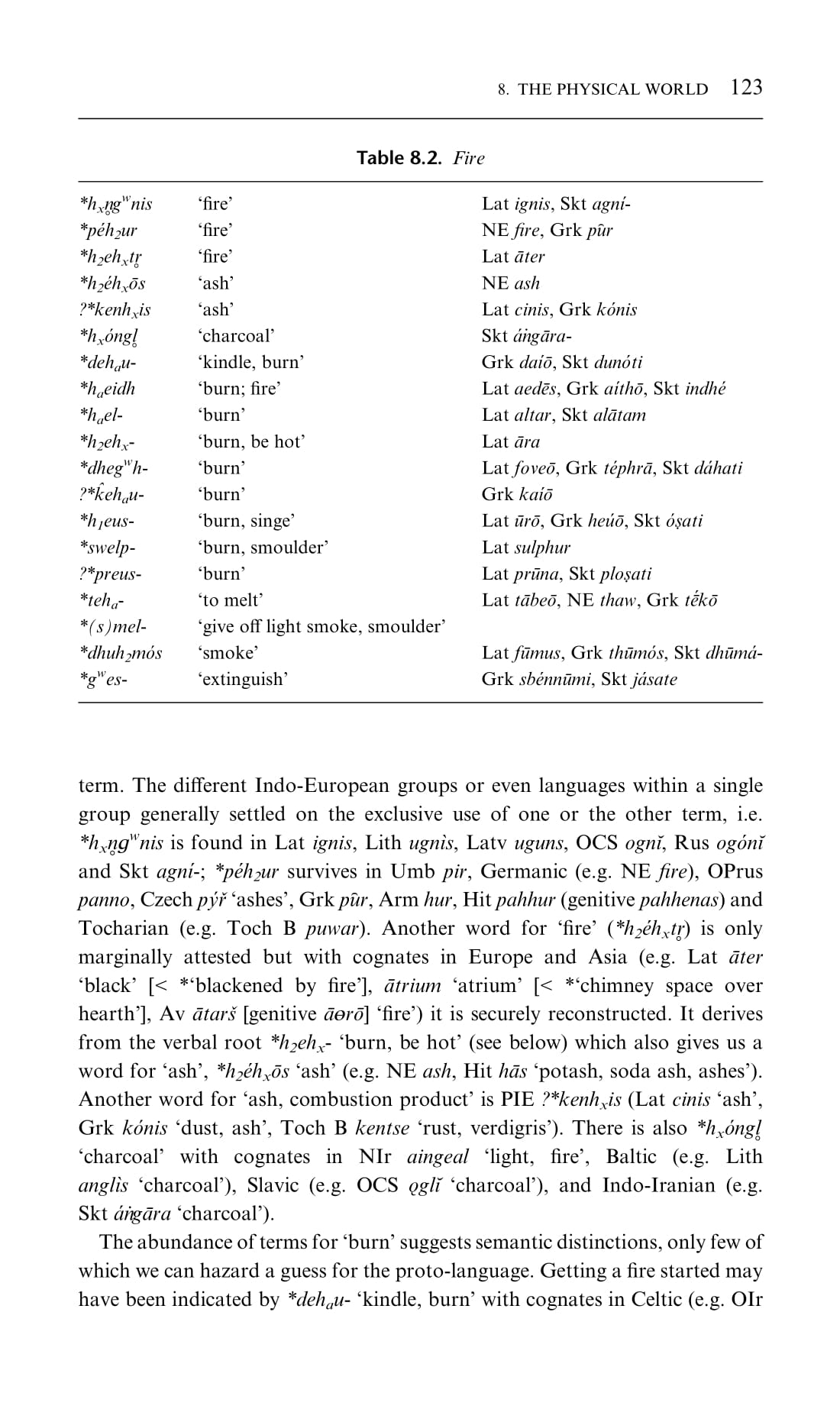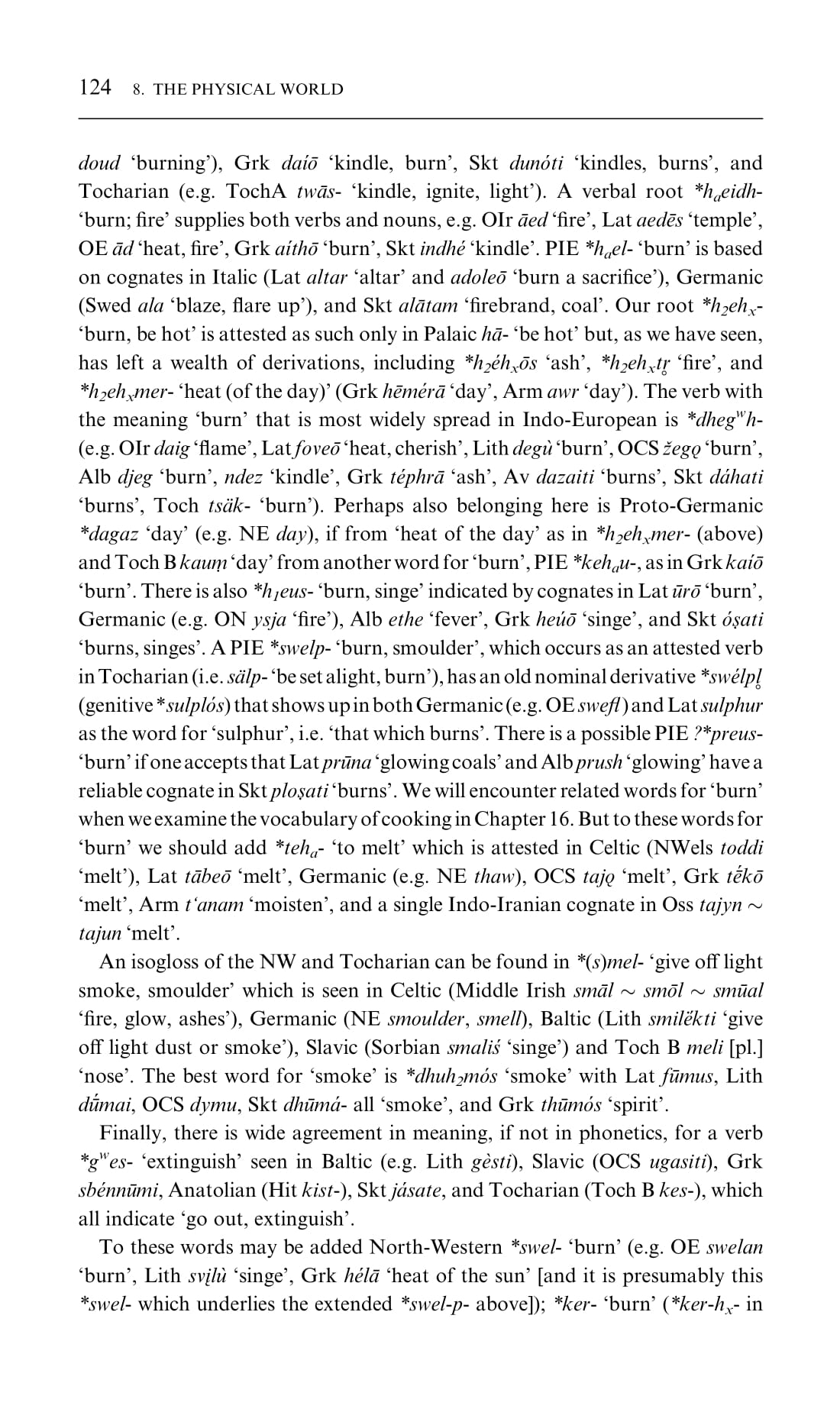Notice about reconstructed forms
The study of language is aided by means of documented evidence in the form-factor of writing. However, not all languages utilized writing at all points in time. Consequently, scholars rely on the comparative method in order to fill this gap. While useful, this method is not perfect. This is why words that begin with '*' are called reconstructions; they are word forms reconstructed by means of said method.
- What this means: information with 'proto-' or '*' before it is either speculative, understood as accurate by a minority of scholars, or both
- Why this is: there is a lack of attested written records or scholars may disagree
- Why this matters: these data may be inaccurate or subject to rapid change
- Why this is included: reconstructed languages and terms help scholars study historical linguistics; and they encourage open debate
In short, it is not recommended to rely on these data as facts. Before referencing these data for scholarly works, we recommend checking for newer sources. If referencing said data, we recommend introducing them with indeterminate modifiers such as "some evidence may suggest that ..." or "one interpretation by [scholar name] argues that ...", and so forth.
Main definition source for *dʰuh₂mós
'smoke' Lat fūmus, Grk thūmós, Skt dhūmá-
Page Image(s)


Constituents of *dʰuh₂mós
Descendants of *dʰuh₂mós
- Proto-Indo-Iranian: *dʰuHmás (word) "mist, fog, smoke"
- Proto-Italic: *fūmos (word) "smoke"
-
Proto-Hellenic:
*tʰūmós
(word)
"vapor, breath; soul, spirit"
-
Ancient Greek:
Thumos
(θῡμός · thūmós · noun)
"vital force, spirit, life"
- Modern Greek: Thymos (θυμός · thymós · noun) "anger, rage"
-
Ancient Greek:
Thumos
(θῡμός · thūmós · noun)
"vital force, spirit, life"
Citation
PsychLing Contributors. "*dʰuh₂mós." PsychLing, OMNIKA Foundation, 1 Sep. 2023, psylng.org/mli/indo/pie/dʰuh₂mós. Accessed 20 Feb. 2026.
PsychLing (2023, September 1). *dʰuh₂mós. Retrieved from https://psylng.org/mli/indo/pie/dʰuh₂mós
Bibliography
Campbell, Lyle R., and Mauricio J. Mixco, eds. A Glossary of Historical Linguistics. Edinburgh, Scotland: Edinburgh University Press, 2007.
Crystal, David, ed. A Dictionary of Linguistics and Phonetics. 6ed. Malden, MA: Blackwell Publishing, 2011.
Internet Archive Contributors. "Wayback Machine." San Francisco, CA: Internet Archive. Created October 24, 2001. Accessed July 21, 2023. https://web.archive.org. [Visit]
Mallory, James P., and Douglas Q. Adams. The Oxford Introduction to Proto-Indo-European and the Proto-Indo-European World. Oxford, United Kingdom: Oxford University Press, 2006.
Wales, Jimmy D., et al. "Wiktionary: The Free Dictionary." San Francisco, CA: Wikimedia Foundation, Inc. Created December 12, 2002. Accessed July 28, 2023. https://wiktionary.org. [Visit]
PsychLing MLI
*-mos is a reconstructed suffix from the proto-language known as Proto-Indo-European. Scholars believe that it means "a word ending that creates action nouns or result nouns from verbs."
Read morePsychLing MLI
*dʰewh₂- is a reconstructed root from the proto-language known as Proto-Indo-European. Scholars believe that it means "smoke; mist, haze."
Read morePsychLing Glossary
Attested Language is a term in
PsychLing Glossary
Comparative Linguistics is a field of study that concerns the scientific study of comparing languages.
Read morePsychLing Glossary
Comparative Method is a term in
PsychLing Glossary
Language Family is a term in
PsychLing Glossary
Proto- is a term in
PsychLing MLI
Proto-Indo-European is a proto-language that belongs to the Indo-European language family.
Read morePsychLing Glossary
Proto-Language is a term in
PsychLing Glossary
Reconstruction is a term in
